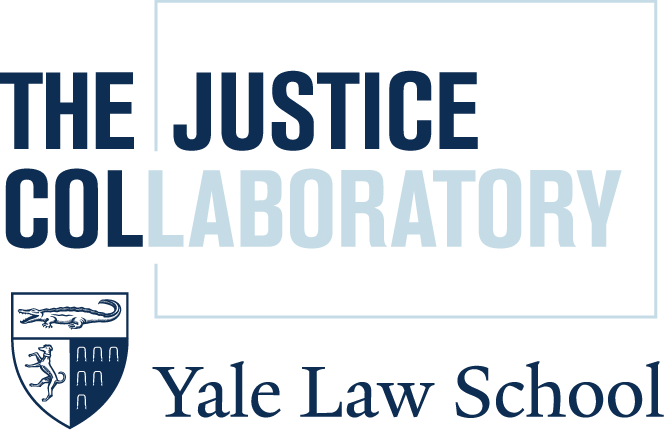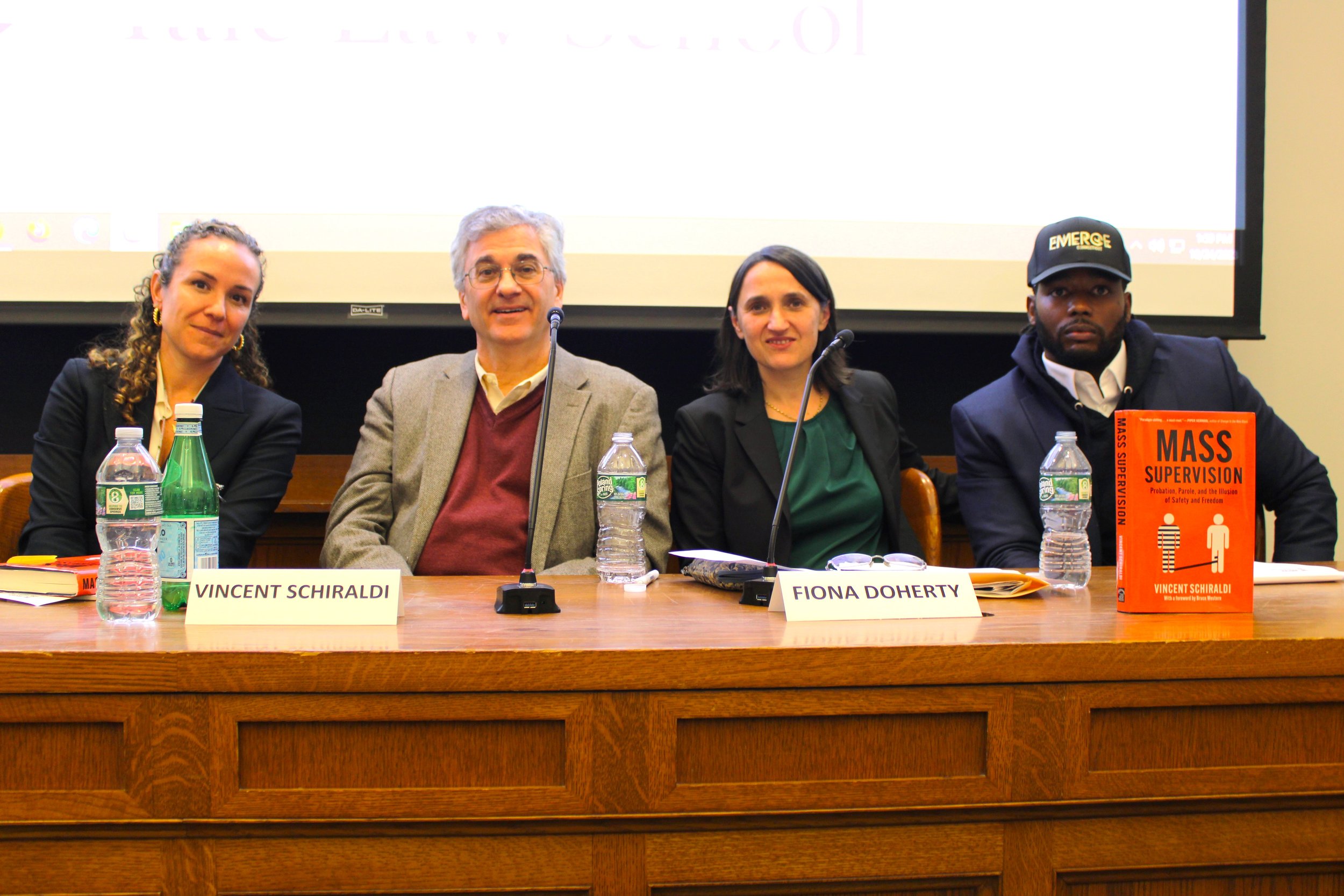Mass Supervision: A Conversation on Probation, Parole, & the Illusion of Safety and Freedom
Inspired by Vincent Schiraldi’s new book Mass Supervision: Probation, Parole, and the Illusion of Safety and Freedom (The New Press, 2023) The Justice Collaboratory, in partnership with the Law and Racial Justice Center, hosted a panel discussion on the topic of probation and parole, and the illusion of safety and freedom.
Schiraldi, a longtime justice advocate, was joined by panelists who are directly impacted by probation and parole, as well as reformers. They included:
Dr. Lisa Puglisi, an Associate Professor of Medicine at Yale and director of Transitions Clinic-Connecticut at the Yale School of Medicine, Maurice (Reese) Keitt, the Recruitment and Outreach Coordinator at Emerge CT and Malcolm Lytell a Research Aide at the SEICHE Center for Health and Justice who was under correctional supervision - prison, probation or parole – for 58 years and is now free.
The panel was moderated by Professor Fiona Doherty, Deputy Dean for Experiential Education and Clinical Professor of Law at Yale Law School.
Attendees included former and current probation and parole officers, law students, and community members who have been or currently are, under correctional supervision.
Here are some key themes that emerged from this dialogue:
1) The system is broken.
There are nearly 4 million people in the United States on parole and probation — double as many as are incarcerated in our prisons and jails.
What began as a well-intentioned effort to help people in the 1800s changed with President Nixon’s Southern strategy in 1972, in which he used the “war on drugs” to assail leftists and Black people. At that time of increased incarceration, probation and parole became more bureaucratic and punitive, instead of rehabilitative.
Evidence shows that mass supervision has failed to achieve its two primary goals—reducing incarceration and improving public safety. Individual parole and probation officers are not equipped, empowered nor incentivized to change the system.
“There is no reward for going the extra mile to help someone, but if that person re-offended, a PO would be humiliated, fired, transferred.” Schiraldi explained. He quoted a probation officer in NYC who told him, “We practice fear probation here. I am locking people up or I get thrown under the bus.”
The consensus among all the speakers was that we can’t be mad at individual POs. We’ve got to figure out ways to fix the system to focus on the positive, instead of an over-reliance on risk factors.
Dr. Lisa Puglisi, who treats patients under supervision emphasized that she doesn’t care what a urine test says, for example. This shouldn’t matter if they are functioning well. But the system is more focused on identifying “risk factors”, such as a positive urine test, than the overall well-being of the individual.
2) The system creates a cycle.
One-quarter of people out on parole return to prison for violating the arbitrary, and sometimes impossible, conditions of their parole. Reese explained how a sentence never stops once you are in the system.
“It’s a vicious cycle, it’s never-ending. You come home on parole with a tag on your leg…have to be home by 6:00, not 6:05, not 6:20, but 6:00 and have to adhere to all of these conditions that are not crimes but if violated, you are going back.”
Factors like interacting with someone who has been convicted of a crime, or not finding work within an arbitrary time period can put someone back in prison. He explained that if you are charged with something while under supervision, you will be pressured to plead guilty. You are not afforded due process. “You are not innocent until proven guilty when you are on parole,” he said.
3) It’s impossible to be well under supervision.
Dr. Puglisi said, “The system has created a space of in-between. You are not free, not protected by due process. You are a citizen, but you are not civically engaged. You are not unwell but not well.”
Malcolm, who appeared by video, shared his story: “I’ve never been completely free. Since I was 12, I’ve always answered to someone else. I equate [my recent freedom] with a lot of my ancestors, how they felt when they were free. I can just imagine the feeling they had.”
According to Dr. Puglisi, “Being in this limbo is psychological warfare that is intended to create insecurity. How can you make any plans for the future? Wellbeing depends on being able to see a future.”
4) Legitimacy and social cohesion are more effective than control.
What works instead of supervision? Schiraldi surmises that the answer lies in the legitimacy research conducted by JC founders Tom Tyler and Tracey Meares, and social cohesion research by Robert Sampson and Patrick Sharkey.
“Aside from punishment, there are a lot of reasons people don’t commit crime, such as a bond to their community…If a system is viewed as illegitimate [doesn’t treat people equally, is not transparent, and doesn’t give people the opportunity to share their voice] people will misbehave, but when people feel the system is legitimate, they do better. Socially cohesive neighborhoods with more informal supports, do better, even if you control for other factors like poverty and crime.”
Even the best PO cannot provide the positive support needed, Schiraldi said. Whereas organizations like Emerge CT and Hangtime are within the community and have legitimacy.
5) To undo mass supervision, we need to invest in communities.
Mass supervision and incarceration coincided with massive disinvestment in community supports such as education and health care and an increase in jobs going overseas. To undo it, we must re-invest in communities.
Schiraldi put costs into perspective. It costs $75,000 to send someone to jail. Think about what that could do for a community.
“Let’s just try abolishing supervision for some populations. I’d say nobody on a misdemeanor ever gets on probation whatever that saves, let’s put it back into those communities. Let’s see what happens.”

